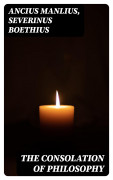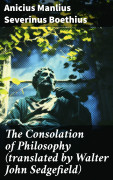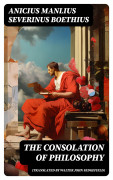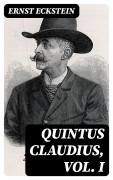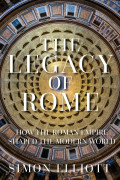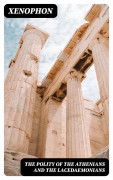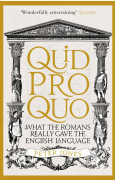Ancius Manlius, Severinus Boethius: The Consolation of Philosophy (3 Classic Translations by James, Cooper and Sedgefield)
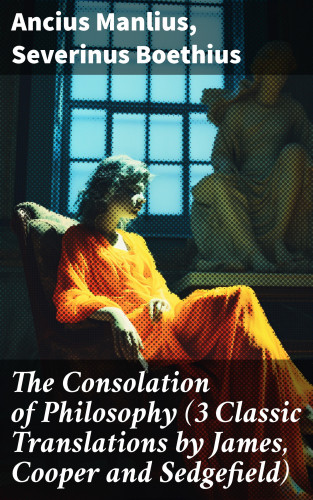
| Produkttyp: | eBook-Download |
|---|---|
| Verlag: | Good Press |
| Erschienen: | |
| Sprache: | Englisch |
| Seiten: | 776 (Druckfassung) |
| Format: | EPUB
Info▼
|
| Download: | 850 kB |
At the heart of 'The Consolation of Philosophy (3 Classic Translations by James, Cooper and Sedgefield)' lies a profound exploration of fate, free will, and the human pursuit of eternal truths, articulated through the divergent lenses of three seminal translations. These versions illuminate the intricate tapestry of Boethius' late antique philosophy, serving as a testament to the enduring appeal and interpretative flexibility of his magnum opus. The collection showcases a rich diversity in literary approaches, revealing the nuanced ways in which language, cultural context, and philosophical outlook can shape the reception of a timeless classic. The selected translations stand as notable achievements in their own right, each contributing a unique voice to the polyphonic dialogue surrounding Boethius' work. The anthology is underpinned by the extensive expertise of Ancius Manlius and Severinus Boethius, whose lives, intersecting the fading light of the Roman Empire and the dawning of the Medieval era, offer invaluable perspectives on the transition of Western thought. Their individual and collective experiences, deeply entwined with the socio-political upheavals and intellectual currents of their time, provide a rich backdrop against which to frame and understand the included translations. This convergence of historical context, philosophical depth, and literary expression presents readers with an unmatched opportunity to engage with 'The Consolation of Philosophy' across multiple dimensions. Educators, students, and enthusiasts of philosophical literature are especially encouraged to explore this collection, not only as a means to deepen their understanding of Boethius' legacy but also to appreciate the dynamic interplay between translation, interpretation, and cultural transmission. Through its celebration of intellectual diversity and its invitation to comparative analysis, the collection fosters a deeper, more nuanced appreciation of one of philosophy's most enduring works.
